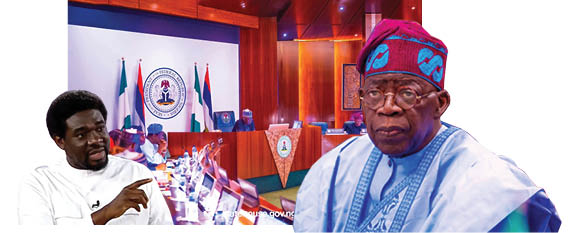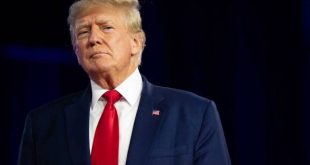In the last few months, Nigeria has been embroiled in a contentious battle over the minimum and living wages, highlighting deep-seated economic and social challenges.
The clash between the Federal Government and the country’s labour unions has reached a temporary hiatus, providing a momentary respite but leaving the fundamental issues unresolved.
This editorial delves into the origins of the conflict, the current state of negotiations, and the potential economic and social consequences as Nigeria navigates this critical juncture.
The issue of minimum wage in Nigeria has been a recurring source of tension. The last official adjustment occurred in 2019, raising the minimum wage from N18,000 to N30,000 per month.
This increase, however, has been insufficient to keep pace with rampant inflation, currency devaluation, and soaring living costs. Consequently, the Nigeria Labour Congress (NLC) and the Trade Union Congress (TUC) have been vocal in their demands for a new wage review.
Labour unions argue that the current minimum wage does not reflect the economic realities faced by workers, who struggle to afford basic necessities such as food, housing, and healthcare among other responsibilities.
On the other side, the Federal Government cites fiscal constraints, exacerbated by the COVID-19 pandemic and volatile oil prices, as barriers to a substantial wage hike.
It behoves on us that we look at the stalemate and dynamics of it all.
The most recent chapter in this ongoing saga saw labour unions threatening nationwide strikes unless their demands were met. Faced with the prospect of widespread disruptions, the government entered into negotiations, resulting in a temporary suspension of planned strikes and a tentative agreement to review the wage structure.
Despite this temporary truce, the specifics of the agreement remain contentious, with the labour advocating for immediate and significant increases, while the government pushes for gradual adjustments.
However the economic implications of the wage dispute cannot be ignored, especially when the current situation in the country is certainly not in isolation.
This is so because the impasse over minimum wage carries significant economic implications. Finding a balance between enhancing workers’ living standards and maintaining fiscal stability is a complex challenge. Key considerations include but not limited to Inflation Risks.
A significant wage increase could fuel inflation if businesses, particularly SMEs, pass higher labour costs onto consumers. This could result in higher prices for goods and services, negating the benefits of wage increases.
Second is the fiscal impact. The Nigerian government faces a substantial fiscal deficit. Higher wages would require increased government spending, potentially worsening the deficit and leading to higher borrowing and debt servicing costs.
Third in line is the business viability and employment. Many businesses, especially those with slim profit margins, could struggle to absorb increased labour costs, leading to layoffs or closures. This could counteract the benefits of wage hikes, resulting in higher unemployment.
The fourth to be considered is the economic growth. Conversely, higher wages could stimulate economic growth by boosting consumer spending.
Increased disposable income could drive demand for goods and services, potentially leading to job creation and business expansion.
Now looking at the social implications of the dispute.
Beyond the economic ramifications, the wage dispute has profound social implications viz improving living standards. A higher minimum wage could significantly improve living standards and reduce poverty, enabling workers to afford better healthcare, education, and overall well-being.
Labour relations and social stability
Prolonged disputes can lead to social unrest and strained labour-public-government relations. Strikes and protests disrupt daily life, productivity, and create an atmosphere of uncertainty.
Another aspect is public trust in government.
The government’s handling of this issue could impact public trust in whichever direction. Perceived insensitivity to workers’ struggles could erode confidence in government institutions, while a fair resolution could enhance trust and social cohesion.
The Temporary Reprieve which was at the instance of President Bola Ahmed Tinubu agreement to reassess the request of the Labour union could be considered as an opportunity for reflection.
The recent pause in hostilities offers a critical window for both sides to reflect and work towards a sustainable solution. This period of calm is essential for several reasons:
Extended Negotiations. It allows for continued dialogue, providing a platform for both sides to present their cases, understand constraints, and find a middle ground.
Economic Evaluation:
The government can use this time to conduct a comprehensive economic assessment, determining the feasible extent of wage increases without jeopardising fiscal stability.
Building Trust: It offers an opportunity for the government and Labour unions to build trust through transparent and constructive engagement, demonstrating a commitment to resolving the issue for the broader benefit of society.
What does the future looks like?
As the temporary reprieve ends, several possible scenarios could unfold:
Mutual Agreement and Wage Adjustment:
An ideal outcome would be a negotiated wage adjustment, requiring compromises from both sides. The government may agree to phased increases while the unions could accept a gradual approach.
Renewed Industrial Actions: If negotiations fail, there is a high likelihood of renewed strikes and protests, leading to disruptions in public services and economic activities, and potentially escalating social tensions.
Broader Economic and Social Reforms: Beyond immediate wage adjustments, this period could catalyse broader discussions on economic and social reforms, addressing underlying issues such as inflation, cost of living, and economic diversification.
Political Consequences:
The handling of this dispute could have significant political ramifications, influencing voters’ sentiments and the political landscape as Nigeria approaches future election cycles.
Economic and Social Impact: The resolution or continuation of the wage impasse will have far-reaching impacts on Nigeria’s economy and social life vis-a-vis
Economic stability and growth: A balanced resolution could foster economic growth and development, while continued conflict could deter investment and slow down economic recovery efforts.
Social cohesion and morale: The handling of the wage issue will impact social cohesion and public morale. A fair resolution could enhance social harmony, while prolonged disputes could lead to frustration and unrest.
Public Services and Productivity: Strikes and industrial actions disrupt public services, affecting healthcare, education, and transportation sectors. This impacts citizens’ daily lives and reduces overall productivity.
Cost of living and quality of life: The core issue is the cost of living. An effective resolution addressing wage adequacy relative to living costs could significantly improve the quality of life for many Nigerians.
The impasse between the Federal Government and workers over minimum and living wages is a critical issue with wide-ranging implications. The temporary break in hostilities provides an essential opportunity for constructive dialogue and resolution. However, the path forward requires a delicate balance between economic realities and the urgent need to improve workers’ living standards.
A sustainable solution involves not only immediate wage adjustments but also broader economic reforms to tackle inflation, enhance productivity, and diversify the economy. The outcome of this conflict will significantly shape Nigeria’s economic trajectory and social stability in the coming years. It is imperative for both the government and the Labour unions to approach this issue with responsibility and a commitment to the nation’s greater good.
 National Telescope national telescope newspaper
National Telescope national telescope newspaper




